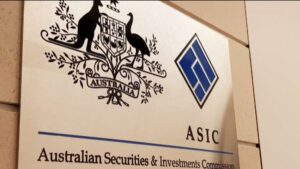Globally, the number of shareholder class actions concerning climate risk disclosures is accelerating. This is most visible in the United States, where investors have been particularly active in using legal proceedings to scrutinise companies’ “green” credentials. One needs only look at the class actions filed against Exxon Mobil Corporation (2016), Edison International (2018), Danimer Scientific Inc (2021), Oatly Group AB (2021), Enviva Inc (2022) and Danone Waters of America Inc (2022), to discern this trend.
Australia is not immune to this phenomenon. In August 2021, the Australasian Centre for Corporate Responsibility (ACCR) filed a class action in the Federal Court of Australia on behalf of shareholders in Santos Limited. The ACCR alleges that the company’s “clean energy” claims and “Net Zero” plan were false and misleading. The case is yet to be determined, with the ACCR having only recently expanded the claims against Santos.
While the ACCR’s class action was the first of its kind in Australia, it will certainly not be the last. There has been a steep rise in investor demand for ESG-mandated assets over the last few years, with investment more than doubling from 2020 to 2021.[1] And, at their current growth rate, such assets will represent half of all professionally managed assets globally by 2024.[2] Shareholder claims already account for a substantial proportion of class action filings in Australia[3] and are expected to surge.[4] The strong investor appetite for climate risk disclosures therefore provides fertile ground for further class actions to arise in the near future.
What is “greenwashing”?
There is no legal definition of the term “greenwashing”. Rather, it is a commonly accepted term used in financial and business markets.
Generally, it refers to the misrepresentation of a company’s “green” credentials. In other words: does the company “walk the talk” on their climate risk claims?
According to ASIC, greenwashing has a broader meaning: the extent to which a financial product or investment is not as “green” or ESG-focused as claimed.[5] By including an umbrella reference to all ESG claims, this definition is not limited to climate risk disclosures.
Broadly, greenwashing often takes one of three forms:
- Selective disclosure – disclosing the existence and management of some (but not all) of the environmental risks that the company faces.
- Target-based greenwashing – making claims or commitments about achieving a certain climate goal by a certain date, without having in place the internal strategies and governance practices to achieve that goal.
- Green marketing – misrepresenting the extent to which a product or service is environmentally friendly, sustainable or ethical.
This list is not intended to be exhaustive, and as the legal and regulatory frameworks regarding greenwashing evolve, so too will the types of statements that are likely to attract shareholder scrutiny.
Legal risks
For publicly listed companies, statements about green credentials can give rise to contraventions of various legal obligations. In particular:
- the prohibitions against misleading or deceptive conduct in the Corporations Act 2001 (Cth) (CA), the Australian Securities and Investments Commission Act 2001 (Cth) (ASIC Act) and the Australian Consumer Law (ACL);
- the prohibitions against false or misleading statements in the CA, ASIC Act and ACL;
- the continuous disclosure obligations in Chapter 3 of the ASX Listing Rules.
Companies will need to carefully assess where their disclosures sit within these legal frameworks. For instance, statements about future matters will be considered misleading or deceptive if not based on reasonable grounds. Similarly, statements that were once true may not be true anymore and, therefore, misleading. Managing these risks will require companies to develop and implement robust business and governance practices.
Directors and other company officers also face the risk of personal liability. This is especially so for those who fail to consider, disclose or take steps regarding the company’s exposure to climate change risks. Together with the company, these officers could be found to have contravened the prohibitions against misleading or deceptive conduct and false or misleading statements.
Directors could also be liable for breaching their duties to act with due care and skill and in the best interests of the company.[6] However, for these breaches, shareholders would be required to seek leave of the Court to bring a derivative action against the directors on behalf of the company,[7] which is a different type of legal proceeding to a class action.
Where ASIC goes, investors often follow
Since shareholder class actions often follow or accompany regulatory enforcement action, the focus areas of ASIC provide a reliable indicator of class action risk.
In the past 12 months, ASIC has demonstrated that it is closely monitoring and taking steps to address greenwashing. Commencing in June 2022 with the release of its information sheet on how to avoid greenwashing, ASIC later announced in November that one of its enforcement priorities for 2023 would be “misleading conduct in relation to sustainable finance, including greenwashing”.
ASIC has since carried through on its commitment. Various companies – including Tlou Energy Ltd, Vanguard Investments Australia Ltd, Future Super Investment Services Pty Ltd and Black Mountain Energy Ltd – have been issued with infringement notices for allegedly making misleading “green” claims. But most notably, ASIC this year filed civil penalty proceedings against Mercer Superannuation in the Federal Court of Australia, alleging that Mercer misled its members by claiming that its assets excluded companies involved in carbon intensive fossil fuels.
As ASIC continues to ramp up its efforts in targeting greenwashing, legal action from shareholders seeking to scrutinise companies’ green credentials is likely to become more prominent as well.
This article was written by GRT Lawyers\’ Senior Associate, Alexander Sloan.
[1] Responsible Investment Association Australasia, Responsible Investment Benchmark Report – Australia 2022, page 20.
[2] Deloitte Centre for Financial Services, Ingraining sustainability in the next era of ESG investing (5 April 2022).
[3] Prof. Vince Morabito, Empirical perspectives on twenty-one years of funded class actions in Australia (April 2023).
[4] Australian Financial Review, Class actions report tips surge in shareholder claims, 2 March 2023.
[5] ASIC Information Sheet 271 (INFO 271), How to avoid greenwashing when offering or promoting sustainability-related products.
[6] See sections 180 to 182 of the Corporations Act 2001 (Cth).
[7] See sections 236 and 237 of the Corporations Act 2001 (Cth).






